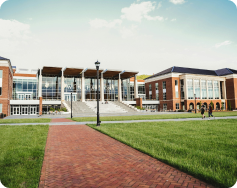Exploring The Public Universities in Bangladesh
Public universities in Bangladesh play a crucial role in the nation’s educational landscape, driving economic growth, social progress, and cultural development. These institutions, funded and managed by the government, provide affordable education to millions of students and contribute significantly to research, innovation, and skilled workforce development.
Historical Context and Evolution
The history of public universities in Bangladesh dates back to the British colonial period with the establishment of the University of Dhaka in 1921, which has since been a cornerstone of higher education in the region. After the country's independence in 1971, the government prioritized expanding higher education to meet the growing demands of a nascent nation. Over the years, the number of public universities has increased significantly, from a handful in the 1970s to over 50 today.
Key Public Universities
Among the notable public universities are the University of Dhaka, Bangladesh University of Engineering and Technology (BUET), Jahangirnagar University, Rajshahi University, and Chittagong University. Each institution has carved out a niche in different academic and research domains.
- University of Dhaka: Often referred to as the "Oxford of the East," it is renowned for its arts, social sciences, and natural sciences programs. The university has produced numerous leaders, scholars, and professionals who have made significant contributions both nationally and internationally.
- Bangladesh University of Engineering and Technology (BUET): Recognized for its rigorous engineering and technology programs, BUET is the premier institution for aspiring engineers and architects in Bangladesh. Its alumni are instrumental in the development of the country’s infrastructure and technology sectors.
- Jahangirnagar University: Known for its picturesque campus and strong emphasis on research, this university excels in the natural and social sciences. It has a unique residential system that fosters a vibrant academic community.
- Rajshahi University: This institution is a vital educational hub in the northern region of Bangladesh, offering diverse programs in arts, sciences, and business. It has played a significant role in the socio-economic development of the area.
- Chittagong University: Situated in the southeastern part of the country, it is renowned for its research in marine sciences and business studies, benefiting from its proximity to the Bay of Bengal and Chittagong port.
Challenges and Opportunities
Despite their contributions, public universities in Bangladesh face numerous challenges. Limited funding, political interference, inadequate infrastructure, and faculty shortages often hinder their potential. These issues have led to overcrowded classrooms, outdated curriculums, and insufficient research facilities.
However, the government and educational stakeholders are actively working to address these challenges. Initiatives such as the Higher Education Quality Enhancement Project (HEQEP) aim to improve infrastructure, enhance faculty development, and foster a research culture. Additionally, collaborations with international universities and organizations are helping to bring in global best practices and resources.
Impact on National Development
Public universities in Bangladesh are not just educational institutions; they are pivotal in shaping the country’s future. By providing accessible higher education, they contribute to reducing inequality and empowering underprivileged communities. The research conducted in these universities addresses local and national issues, from agricultural innovation to health challenges, thus directly impacting the socio-economic fabric of the country.
Moreover, these universities serve as breeding grounds for critical thinking, innovation, and leadership. Graduates from public universities often take on key roles in government, industry, academia, and civil society, driving the nation’s progress.
Conclusion
Public universities in Bangladesh are indispensable to the nation’s educational and developmental agenda. While they face several challenges, the ongoing efforts to enhance their quality and reach are promising. As the country continues to invest in these institutions, they will undoubtedly play a central role in building a more prosperous and equitable Bangladesh.








